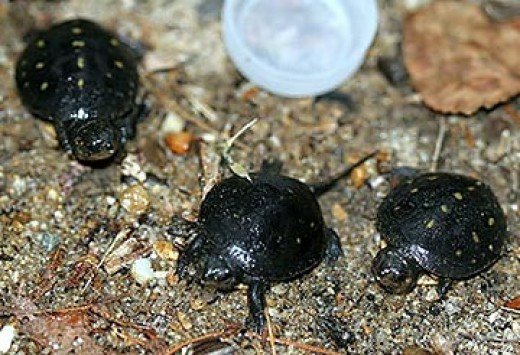Turtles are disappearing from the planet faster than any other group of animal. Today, nearly 50 percent of freshwater turtle species worldwide are identified as threatened with extinction. Twenty percent of the world's turtle species are found in North America and the United States has more native turtle species than anywhere on Earth; it's a turtle biopersity hotspot. Of the seven species of turtles considered native to New Hampshire, four (Blanding's, spotted, wood and box turtles) are identified as species in greatest need of conservation in the New Hampshire Wildlife Action Plan.
International conservationists have declared 2011 the “Year of the Turtle” in an effort to raise public awareness of the precarious state of turtle populations around the world. It's not just the turtles themselves that are at risk. Both sea and land turtles (tortoises) play a central role in their respective habitats. Not only do tortoises help keep grasses short and healthy, but they also serve as an important food source for a number of predators. Likewise, sea turtles graze on the grasses found on the sea floor, thereby maintaining a healthy breeding ground for fish and crustaceans.
It's not too late for our turtle heritage to be salvaged. Our careful stewardship can preserve the rare species and keep common species common. For example, affordable and easy safeguards such as tunnels under busy highways, taking extra care when using farm machinery or ensuring the fishing industry uses turtle-friendly nets could make a world of difference. Meanwhile, on a global scale, scientists argue that improved eco-crisis management systems, such as responses to oil spills, could also play a key role in bringing some of the rarest turtle species back from the brink.
On Sept. 28 at 7 p.m., the Capital Chapter of New Hampshire Audubon will present a program titled “Cycles of the Turtle Season in New Hampshire.” Naturalist, author and illustrator David Carroll will provide an overview of the year of the turtle focusing on the spotted, wood and Blanding's turtles. This program is free and open to the public.
For information about turtle conservation efforts in the Northeast region visit
fws.gov/northeast/ecologicalservices/turtle.









